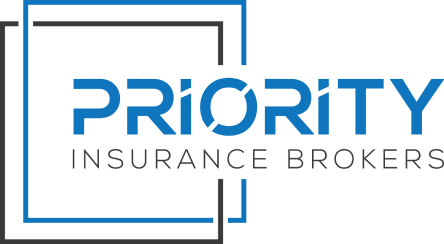Business Insurance in Australia The Ultimate Guide
As an Australian business owner, protecting your venture against unforeseen circumstances should be a top priority. Whether it’s a natural disaster, cyber-attack, employee injury, or lawsuit, these risks can seriously harm your business’s financial stability if not covered by insurance. With numerous insurance types available, deciding which ones are necessary for your business can be overwhelming. Therefore, this comprehensive guide will help you navigate the different types of business insurance in Australia.
Business Package Insurance
Business Package Insurance is an all-inclusive solution covering various commercial risks. This policy generally includes coverage for property damage, liability, and business interruptions. It also encompasses other policies, including public and product liability, fire, theft, machinery breakdown, and glass coverages. When combined under a single policy, Business Package Insurance helps to simplify the administration process, reduce costs, and minimise coverage gaps for small to medium-sized businesses.
While coverage may vary between insurance providers, Business Package Insurance usually covers repair or replacement costs for property damage such as building, equipment, inventory, and stock located on-site or in transit. The policy may also compensate you for the loss of potential income or business interruption due to interruptions to your operations.
Business Package Insurance is particularly relevant to small and medium-sized businesses in Australia as this policy offers flexibility and scalability to meet unique business needs. Small businesses with one location can benefit from the simplicity of an all-in-one policy. Expanding businesses can also benefit from the scalability of this policy, as they can customise the coverage to include additional locations, coverage limits, and employee protection.
Business Package Insurance can also protect against third-party liability claims, including property damage or bodily injury caused by your business interactions with the public. As such, the policy will cover a customer slipping and falling in your business premises or property damage caused by your business activities.
Business Travel Insurance

When travelling for business, you risk encountering unforeseen circumstances such as sickness, accidents, and stolen possessions that can wreak havoc on your trip. In addition, dealing with a medical emergency can become very costly, especially in foreign countries where healthcare costs can be quite high. Business travel insurance can be a saviour in these situations, especially if the medical emergency is severe. Medical expenses aside, business travellers risk losing valuable items such as laptops, phones, and tablets, which can be a huge financial setback for a business.
The Various Coverage Options Available:
Different businesses have different needs. As such, many types of business travel insurance are available to cater to their needs. Here are some of the options available:
- Trip cancellation/Interruption: This helps cover the costs of non-refundable bookings like flight tickets, accommodation, and cruise packages that you had to leave or once a trip is cancelled due to unforeseen events.
- Medical coverage: This coverage pays out for medical expenses if a traveller falls ill during their trip.
- Baggage loss: This coverage pays for losing luggage and important items.
- Liability coverage: This coverage protects the business from damages caused by the negligence of an employee during a business trip.
- Emergency evacuation coverage protects the traveller if they need to be medically evacuated or relocated to receive adequate medical care.
Other Considerations:
When choosing a business travel insurance, other matters are important to bear in mind, including:
Duration and frequency of travel: this determines if you need comprehensive long-term coverage or a temporary plan.
Travel destination: the trip’s destination can impact the coverage to choose.
Budget limits: Budget is an important consideration for businesses when selecting insurance coverage. It is crucial to select the coverage that fits your budget.
Contractual Liability Insurance
In today’s business environment, contracts are essential in establishing, managing, and maintaining relationships with clients, suppliers, and many other parties. Many businesses overlook the risks associated with these contractual obligations and assume that their general liability insurance will be enough to protect them.
However, general liability insurance policies tend to exclude liability for risks arising out of contractual obligations. This is where contractual liability insurance comes in as a specialised form of coverage that protects contractual exposures not typically covered by other types of insurance.
Contractual liability insurance is an essential cover for businesses that enter into different types of contracts, such as lease agreements, service contracts, licensing agreements, construction contracts, and contracts with vendors, clients, or employees. It protects the insured from potential liabilities and losses that might arise from entering into such contracts, including breach of contract, negligence, or other legal issues that could result in financial losses.
With contractual liability insurance, businesses can transfer their contractual risks to the insurance company. They can also satisfy their contractual requirements by using the policy as a financial guarantee to show their partners that they are insured and can financially comply with the obligations stipulated in their contracts.
Moreover, contractual liability insurance may also cover other contractual liabilities such as intellectual property rights infringement, employment practices liability, Third-party bodily injury, and property damage liabilities.
Cyber Insurance
Cyber insurance is a type of insurance that protects companies against internet-based risks such as data breaches, network failures, and cyber attacks. A cyber insurance policy can provide financial support and resources for businesses during a cyber security breach. The coverage includes liability protection, first-party coverage, and risk management services.
Why Does Your Business Need Cyber Insurance?
Every business that uses technology to store and process information or transact online is vulnerable to cyber-attacks. Cyber attackers can access confidential data, manipulate systems or plant malicious software leading to significant losses of finances, reputational damage, and legal liabilities. In addition, cyber security incidents can lead to business disruptions and loss of productivity, which can be detrimental to a company. Cyber insurance gives businesses peace of mind that they are protected in the case of a cyberattack and that they have access to financial resources and risk management services to mitigate damages.
What Does Cyber Insurance Cover?
Cyber insurance coverage can vary depending on the policy, but it typically includes the following:
- Liability Protection: This protection covers losses due to third-party claims from clients or customers resulting from the business’s cybersecurity breach.
- First-party Losses: This coverage pays for companies’ losses internally because of a cybersecurity breach. This may include income loss and expenses to restore data and cover reputational damage.
- Risk Management Services: Insurance carriers partner with cybersecurity experts to offer businesses and employees training, incident planning and response, vulnerability assessments, and network security testing.
- Cybercrime: Coverage for identity theft and cyber extortion.
Management Liability
Management liability insurance covers claims arising from managerial actions, both intentional and unintentional. It can protect businesses against claims such as wrongful termination, harassment, discrimination, breach of duty, or negligence. This insurance can cover both legal expenses, settlement costs, and damages.
Who needs management liability insurance?
Any business that employs directors, officers, or managerial employees can benefit from management liability insurance. This is particularly important for small to medium-sized businesses needing more legal resources or financial reserves to cover potential claims.
What does management liability insurance cover?
Management liability insurance can cover a broad range of claims, including:
- Directors’ and officers’ liability
- Employment practises liability
- Crime and fidelity
- Statutory liability
- Cyber liability
- Tax audit
Some policies may offer additional coverage for reputation management, defamation, or crisis management following an event that could damage the business’s reputation.
How can management liability insurance benefit your business?
Management liability insurance can give your business peace of mind and protection against financial setbacks resulting from claims you may not be able to defend or afford. It can also protect your business’s reputation by covering potential reputational damages. Management liability insurance can increase your credibility and trustworthiness with clients, suppliers, and stakeholders.
How do you choose the right management liability insurance policy?
Choosing the right management liability insurance policy can be overwhelming, given the complexities involved. Different types of policies in the market offer different levels of coverage. Therefore, it’s essential to consult with an experienced insurance broker who can help you assess your business’s specific risks and recommend the ideal coverage.
Plant and Equipment Insurance

This insurance covers machines, tools, and other equipment integral to your business operations. Examples of equipment covered by this insurance include bulldozers, cranes, forklifts, and other heavy-duty machinery. It is worth noting that this type of insurance has the added benefit of covering equipment that is being transported or stored when it is not in use.
When Should You Consider Plant and Equipment Insurance?
When companies invest in plants and equipment, they take measures to protect these valuable assets. Business owners should also take the necessary measures to protect their assets in the event of unexpected damages or loss. Therefore, it is essential for small and large businesses that rely on heavy equipment or tools to safeguard their investments.
What Does Plant and Equipment Insurance Cover?
The primary coverage provided by this comprehensive policy includes the following:
- Damage from perils or theft. If your equipment is stolen or lost, the insurance provider will provide compensation so you can replace or repair the lost items.
- Damage caused by Accidents. In an accident, plant and equipment insurance coverage will compensate for repairing or replacing your machinery or equipment.
- Accidents from natural calamities. Machinery and equipment can be damaged due to natural calamities like floods, fires, etc. Plant and equipment insurance will cover the damages caused.
- Third-party claims. It also shields businesses from third-party claims, from property damage to bodily injury caused by your equipment.
Prestige Home Insurance
Prestige home insurance is a specialised insurance policy designed to provide comprehensive protection for high-value homes. Like traditional home insurance policies, prestige home insurance policies cover damage to the property’s structure and contents caused by fire, theft, and natural disasters. However, prestige home insurance offers additional coverage for swimming pools, home theatres, and expensive art collections. This type of insurance policy typically has higher coverage limits than traditional home insurance policies since the value of the property and its contents is often much greater.
Why is Prestige Home Insurance so important?
Prestige home insurance is crucial for business owners with luxury homes because it covers risks unique to high-value properties. These risks can include damage to high-end finishes, fixtures, and appliances and the cost of rebuilding the home to its original state if it is destroyed in a natural disaster. Prestige home insurance also provides liability coverage, protecting homeowners if someone is injured on their property and takes legal action.
What Factors Affect the Cost of Prestige Home Insurance?
The cost of prestige home insurance policies varies depending on a range of factors, including the location and value of the property, as well as the homeowner’s insurance history and claims record. Other factors that can affect the cost of coverage include the type and amount of coverage needed, security features such as alarm systems and surveillance cameras, and the home’s proximity to hazards such as fire-prone areas and flood zones.
How to find the right Prestige Home Insurance Policy?
Finding the right prestige home insurance policy for your business requires careful consideration of your unique needs and risks. Working with a reputable insurance provider who can provide personalised, comprehensive coverage options tailored to your specific needs is essential. Consider price, coverage limits, deductibles, and customer service when searching for a policy. Always read the fine print of your policy before signing to understand any exclusions or limits to coverage.
Professional Indemnity Insurance
Professional indemnity insurance is a type of business insurance designed to safeguard against claims arising from professional errors or negligence. In a nutshell, if your business provides advice or services to clients, professional indemnity insurance can protect you against the financial consequences of any mistakes or negligence. This type of insurance is used in many professions, including doctors, accountants, engineers, and architects.
If your business involves providing professional services to clients, whether it be through consulting, design, or any other type of expertise, you should consider investing in professional indemnity insurance. It is particularly important if you provide advice, as errors in judgement or incorrect information can lead to legal action taken against your business. It is also important if your business is involved in design or software development tasks, where errors can result in financial losses for clients.
Professional indemnity insurance can cover several scenarios, depending on the specific policy. Generally, it covers legal fees and compensation payouts arising from claims against your business. In some cases, it can also cover unintentional breaches of confidentiality, defamation, and other legal liabilities. However, it is important to note that every policy is different, and it is crucial to read the fine print before purchasing any insurance policy.
One important aspect to consider when choosing a professional indemnity insurance policy is the level of coverage required. This can vary depending on your industry, the size of your business, and the specific services you provide. Choosing a policy with an appropriate coverage level is important to protect your business against any potential legal claims. It is also important to make sure your policy includes any exclusions or limitations that may apply, such as coverage for design work or advice given outside of your professional scope.
Public Liability Insurance
The broad scope of public liability insurance is one of the reasons why it is so essential for businesses of all sizes across all industries. It covers many claims, including personal injury, property damage, and financial losses to third parties. This means that you will be covered if someone is injured on your premises or if you cause damage to someone’s property while carrying out work.
When choosing the right policy, there are several factors to consider. Firstly, you need to determine the level of coverage that your business requires. This will depend on factors such as the size of your business, the nature of your work, and the level of risk associated with your operations. You should also consider any legal requirements that may apply to your industry.
Another important factor to consider is the cost of the policy. While it may be tempting to opt for the cheapest option, ensuring adequate coverage for your business’s needs is important. You should also consider any additional benefits the policy includes, such as legal expenses coverage or product liability insurance.
In addition to choosing the right policy, it is important to understand the claims process and how to make a claim if needed. If an incident occurs, it is important to report it to your insurer immediately. Your insurer will then investigate the claim and assess the required compensation level. Cooperating fully with your insurer throughout the process is important to ensure your claim is processed as quickly and efficiently as possible.
Truck Insurance
Truck insurance policies come in various forms, including liability, collision, comprehensive, cargo, and physical damage coverage. Liability coverage is the most basic truck insurance policy required by law. It covers the costs associated with an accident that you cause, such as property damage, medical expenses, and legal fees. Collision coverage, on the other hand, covers the damages to your truck if it hits another vehicle or object. In contrast, comprehensive coverage protects your truck if it is damaged due to weather, theft, or vandalism. Cargo insurance is for businesses that carry goods. In contrast, the physical damage insurance will cover the repair costs for your truck if it experiences damage from a non-collision event, such as a fire or falling tree.
Benefits of Truck Insurance
The primary benefit of truck insurance is the protection it provides for your business. An accident or incident can be costly, significantly impacting your bottom line. Truck insurance protects you from these costs, allowing you to stay operational and mitigate downtime. Truck insurance can also offer peace of mind, protecting your business from unexpected expenses and legal fees.
How to Choose the Right Truck Insurance Policy
When choosing a truck insurance policy, several factors come into play:
- Consider the types of coverage you need based on your business operations.
- Determine the level of coverage you require, considering the value of your truck and potential costs associated with incidents. Remember to consider deductibles and premiums to ensure these are feasible for your business.
- Research different insurance providers and read reviews to choose the most suitable policy for your business.
Special Considerations for Truck Insurance
If you have a fleet of trucks, you need to choose a policy that covers all your vehicles. Also, it’s essential to be honest with your insurance provider and disclose all your business operations, as failing to do so may result in coverage denial or policy cancellation. Finally, ensure your policy is updated regularly, as your business and fleet may change over time.
Frequently Asked Questions
How much is public liability insurance for a sole trader?
The cost of public liability insurance for a sole trader will vary depending on many factors, such as the type and location of the business, its size and the industry sector.
How much professional indemnity insurance do I need in Australia?
The amount of professional indemnity insurance you need in Australia depends on the nature of your business and industry. However, as a general guide, you should consider having a cover that at least matches the value of the services or products provided. Speaking to an insurance provider for tailored advice based on your specific circumstances is also important.
How to check if a car has comprehensive insurance?
To check if a car has comprehensive insurance, you can view the vehicle’s registration documents. These should include information about the current insurer and policy type. You can also contact the relevant motor registry or your state’s Department of Transport for more information.
What to do if the insurance company is delaying payment?
If you feel your insurance company is delaying payment, it’s important to stay calm and contact them immediately. Make sure you document any communication with the insurer and politely explain the situation. You may need to provide additional evidence or speak with a manager if necessary. If all else fails, consider contacting an insurance ombudsperson to resolve the matter.
Conclusion
Being insured is vital for any Australian business as it mitigates the financial impact of unexpected events. Business Package Insurance, Travel Insurance, Contractual Liability Insurance, and Truck Insurance are all essential policies for different types of businesses. It’s also important for businesses to consider how different policies can complement each other for a more comprehensive coverage plan. Ultimately, investing in insurance is investing in the longevity of your business. Therefore, take the time to consider your business needs and seek professional advice to craft a customised insurance package that suits your business needs.







